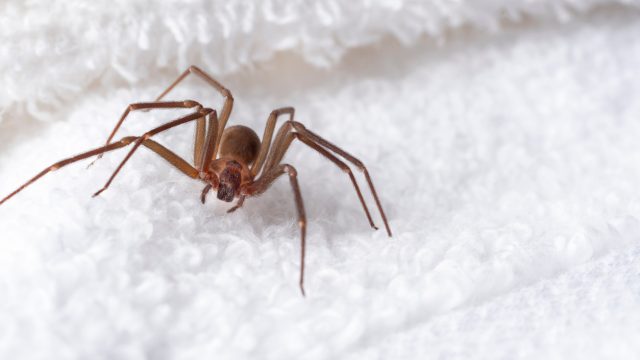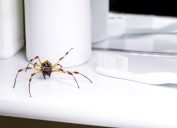If You Live Here, Watch Out for This Poisonous Spider in Your Home
You're more likely to come across this house crasher as the weather warms up.
No matter how clean and tidy your home may be, some bugs and insects from the outside world will find their way indoors and into your living space. Fortunately, most tend to be completely harmless, even if they may be a little scary to come across unexpectedly. But there are still some pests that pose a potential health risk to humans. And if you live in certain areas, experts warn there's one type of poisonous spider that could make its way into your home in the coming months. Read on to see how you can avoid this arachnid in your living space.
READ THIS NEXT: If You Keep This on Your Bed, You May Be Attracting Spiders, Experts Warn.
Certain home maintenance habits could be making it easier for spiders to get inside your house.
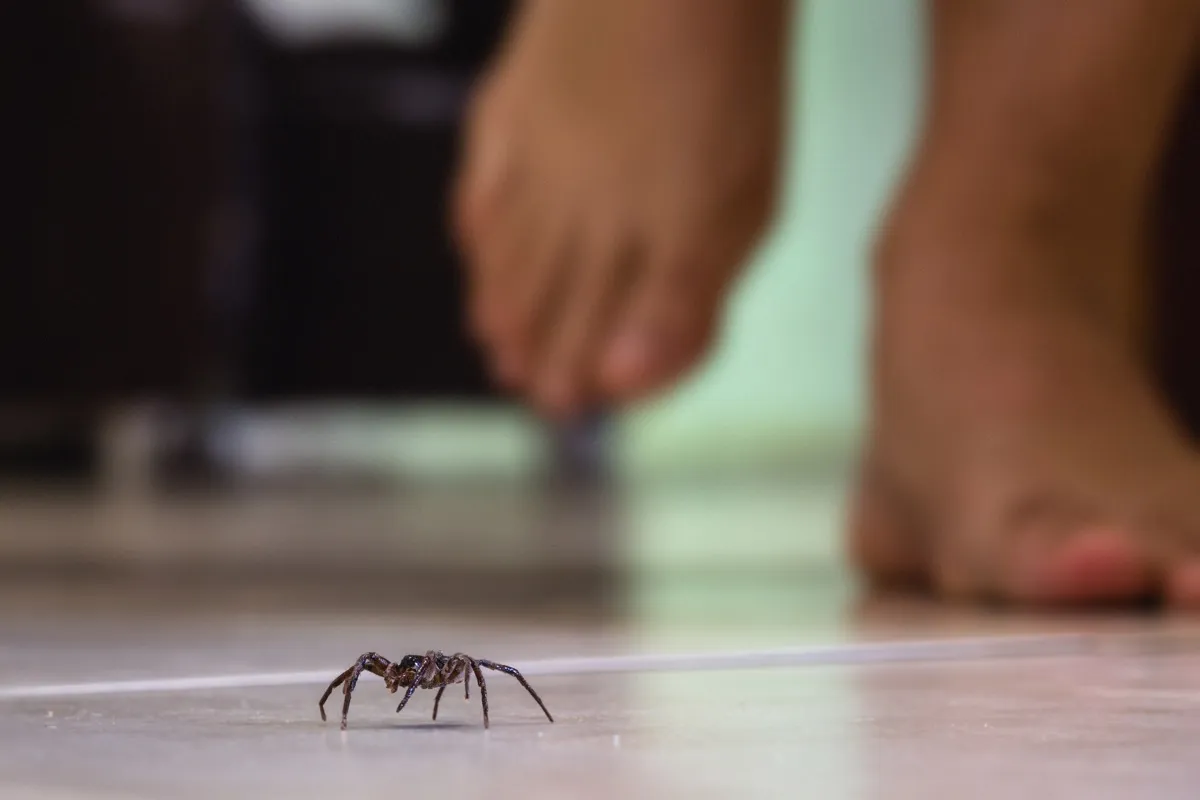
No matter where you call home, spiders will always be very close neighbors to you. And while arachnophobes may feel uneasy at the sight of a freshly spun web, it's important to remember that spiders play a vital role in the ecosystem, often eliminating other bugs and flying insects that can be a nuisance to humans or our gardens. Unfortunately, however, certain types can deliver a painful, poisonous bite if you're not careful to steer clear of them or keep them out of your home.
Like any other critters from the outside world, performing regular checks of screens, windows, doors, and exterior walls for holes, cracks, or tears can go a long way in keeping them from entering. But experts also point out that one home maintenance habit can significantly help reduce how likely it is for a spider to make their way indoors.
"Spiders typically create webs and burrows in shrubs and bushes, between decorative rocks, and in woodpiles," says John Carney, owner of SafeSpray Pest Control. "So if these areas bump up against the foundation of a home, it can give spiders easy access inside. Spiders will find their way inside accidentally while looking for food, or they can intentionally enter in through gaps once the weather begins to get colder and they seek warmth."
Experts warn that one type of poisonous spider may make its way into your home as summer weather approaches.
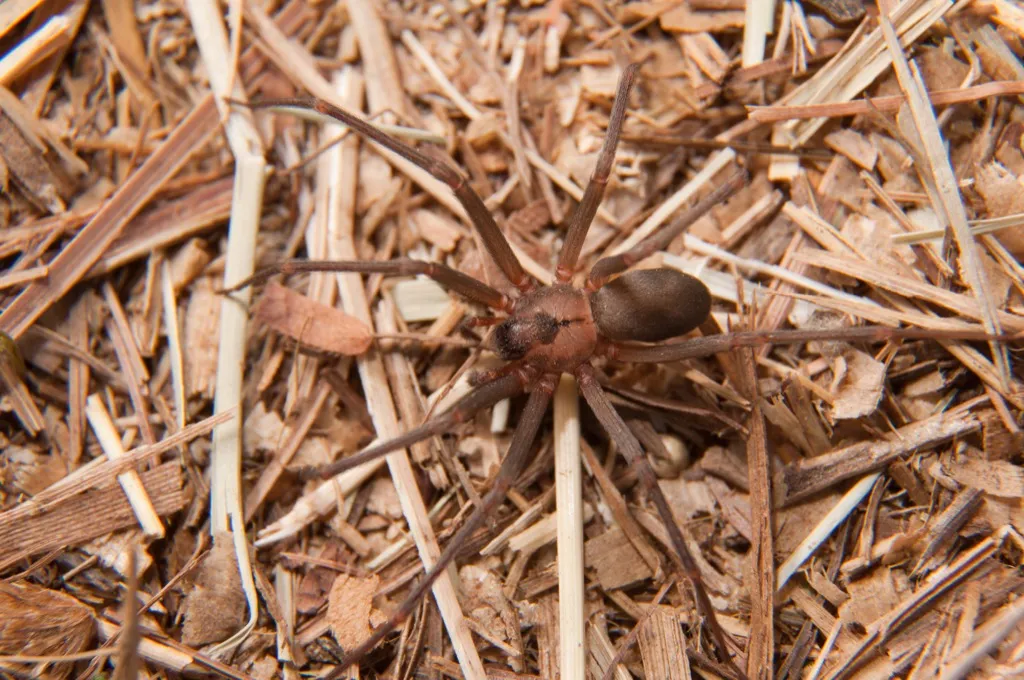
Besides easy entry points, other environmental factors can also play a role in certain bugs and insects attempting to get into your home, including the temperature changes that come with each season. This happens when colder weather forces pests to seek out warmth in many cases. But as warmer weather returns, poisonous brown recluse spiders are becoming more active as they move indoors and out of attics to escape the heat, making it much more likely to come across one, Gerry Marsh, an associate certified entomologist and the president of Patton Termite and Pest Control, told The Wichita Eagle.
According to the Penn State Extension, the four species of brown recluse spiders that are harmful to humans are most common in 16 states, including Alabama, Arkansas, Georgia, Illinois, Indiana, Iowa, Kansas, Kentucky, Louisiana, Mississippi, Missouri, Nebraska, Ohio, Oklahoma, Tennessee, and Texas. However, isolated sightings of the poisonous arachnids have also been reported in Arizona, California, the District of Columbia, Florida, North Carolina, New Jersey, Pennsylvania, Washington, and Wyoming.
RELATED: For more up-to-date information, sign up for our daily newsletter.
Brown recluse bites can sometimes cause painful reactions.
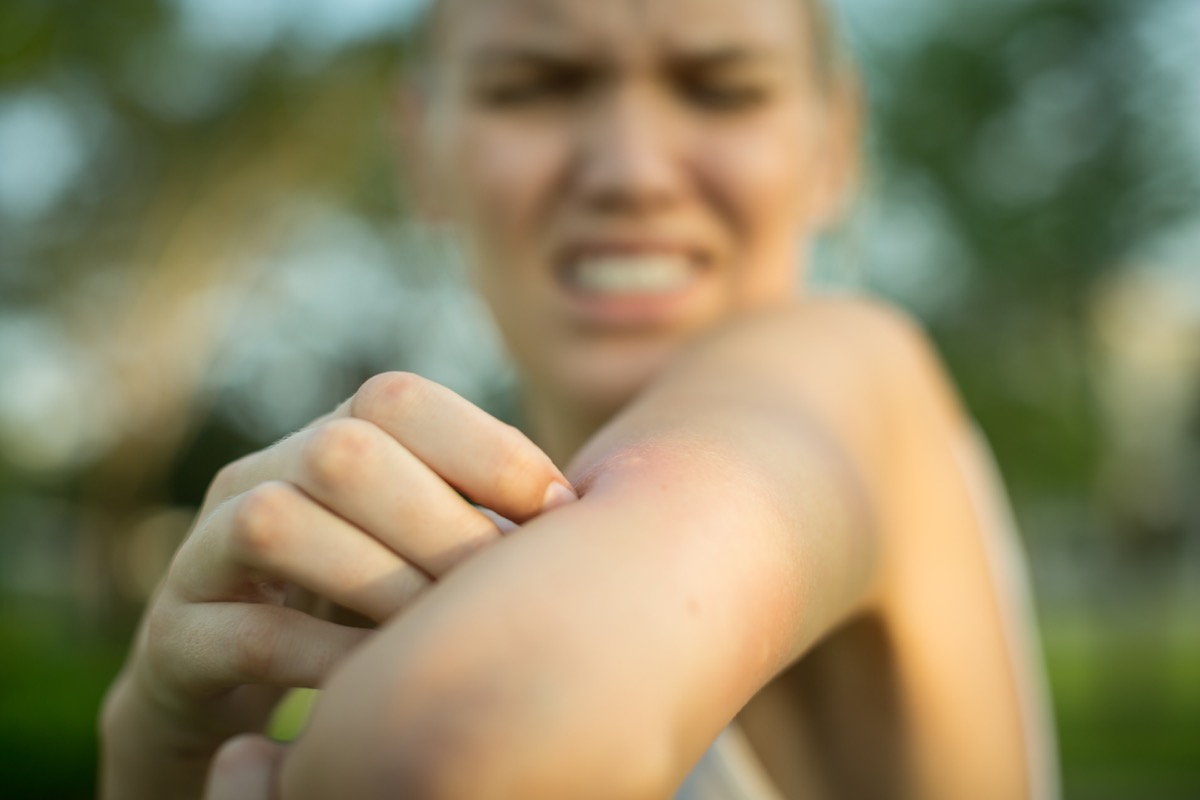
As their name suggests, brown recluse spiders are shy bugs that prefer to hide in woodpiles and foliage outdoors or places such as attics or crawl spaces in homes. The spiders appear smooth rather than hairy and can be identified by their dark brown color, thin legs with "defined structure and pattern," and a violin-shaped marking on their back, according to the Kansas State Research and Extension, per The Wichita Eagle. They're also unique by having three sets of two eyes each, instead of the eight eyes seen in other spiders.
The arachnids' timid nature also makes them less likely to bite humans and only do so when they feel threatened or get crushed between clothing and skin, Jeff Whitworth, an entomologist and extension specialist in entomology at Kansas State University, tells The Wichita Eagle. But due to their venom, the bites can be very painful: According to the Centers for Disease Control and Prevention (CDC), they usually cause "a stinging sensation with localized pain" with a "small white blister" developing on the site. The bite can also slowly destroy skin tissue in some cases, causing a lesion over time that requires medical attention.
Here's how to avoid coming into contact with a brown recluse spider in your home.
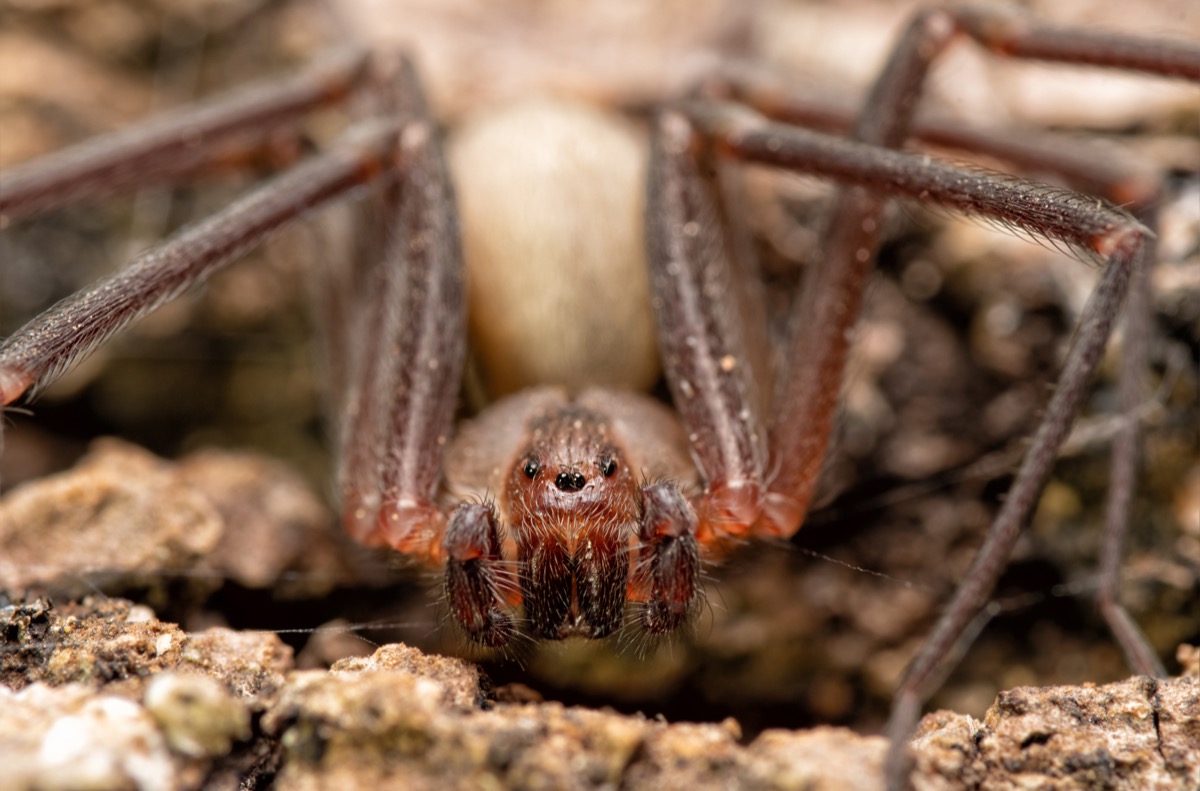
Fortunately, the CDC points out that even though their venom can cause painful or dangerous reactions in some people, brown recluse spiders "cannot bite humans without some form of counter pressure, for example, through unintentional contact that traps the spider against the skin." Because of this, experts point out that anyone who shares a habitat with the shy arachnids should exercise a little more caution in their daily lives.
"We tell everybody, one of the proper ways of avoiding brown recluse spiders is to make sure you don't leave any of your clothes on the floor, or if you pick up your shoes every morning, shake them out real good because that's where they're hiding," Whitworth told The Wichita Eagle. It can also help to remove any bed skirts to avoid giving them access to your mattress, where they may try to hide out in your comforter or sheets, Marsh warns.
Ultimately, even though it's essential to remain vigilant about them in your living space, experts point out that homeowners can easily handle them. "Remember, a brown recluse spider is probably more scared of you than you are of it," Whitworth told the paper. "They'll leave you alone if you leave them alone or contact pest control."
READ THIS NEXT: If You Live Here, Watch Out for Giant Spiders Falling From the Sky.
